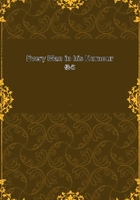Gneist's work is somewhat different in colouring and closely connected with a definite political theory, Tocqueville in France has done most to draw attention to the vital importance of local self-government in the development of liberal institutions; and Stubbs' history goes far to demonstrate Tocqueville's general view by a masterly statement as to the origins of English institutions. In Gneist's hands the doctrine of decentralisation assumes a particular shape by the fact that it is constructed on a social foundation; the German thinker has been trying all along to show that the English influence is not one of self-government only, but of aristocratical self-government. The part played by the gentry in local and central affairs is the great point of historical interest in Gneist's eyes. Even in the Saxon period he lays stress chiefly on the early rise of great property, and the great importance of 'Hlafords' in social organisation. He pays no attention to the village community, and chiefly cares for the landlord. But still even Gneist admits the original personal freedom of the great mass of the people, and his analysis of the English condition is based on the assumption, that it represents one variation of Teutonic development: this gives Gneist a place among the Germanists, although his views on particular subjects differ from those of other scholars of the same school.
Its chief representatives have acquired such a celebrity that it is hardly necessary to insist again, that excellent work has been done by them for the study of the past. But the direction of their work has been rather one-sided; it was undertaken either from the standpoint of political institutions or from that of general culture and external growth; the facts of agriculture, of the evolution of classes, of legal organisation were touched upon only as subsidiary to the main objects of general history. And yet, even from the middle of the century, the attention of Europe begins to turn towards those very facts. The 'masses' come up with their claims behind the 'classes,' the social question emerges in theory and in practice, in reform and revolution;Liberals and Conservatives have to reckon with the fact that the great majority of the people are more excited, and more likely to be moved by the problems of work and wages than by problems of political influence. The everlasting, ever-human struggle for power gets to be considered chiefly in the light of the distribution of wealth; the distribution of society into classes and conditions appears as the connecting link between the economical process and the political process. This great change in the aspect of modern life could not but react powerfully on the aspect of historical literature. G.F. von Maurer and Hanssen stand out as the main initiators of the new movement in our studies. The many volumes devoted by G.F. Maurer to the village and the town of Germany are planned on a basis entirely different from that of his predecessors. Instead of proceeding from the whole to the parts, and of using social facts merely as a background to political history, he concentrates everything round the analysis of the Mark, as the elementary organisation for purposes of husbandry and ownership. The Mark is thus taken up not in the vague sense and manner in which it was treated by Kemble and his followers; it is described and explained on the strength of copious, though not very well sifted, evidence. On the other hand, Hanssen's masterly essays on agrarian questions, and especially on the field-systems, gave an example of the way in which work was to be done as to facts of husbandry proper.
Nasse's pamphlet on the village community may be considered as the first application of the new methods and new results to English history. The importance of his little volume cannot easily be overrated: all subsequent work has had to start from its conclusions.
Nasse's picture of the ancient English agricultural system, though drawn from scanty sources, is a very definite one. Most of the land is enclosed only during the latter part of the year, and during the rest of the year remains in the hands of the community. Temporary enclosures rise upon the ploughed field while the crop is growing; their object, however, is not to divide the land between neighbours but to protect the crop against pasturing animals; the strips of the several members of the township lie intermixed, and their cultivation is not left to the views and interests of the owners, but settled by the community according to a general plan. The meadows are also divided into strips, but these change hands in a certain rotation determined by lot or otherwise. The pasture ground remains in the possession of the whole community. The notion of private property, therefore, can be applied in this system only to the houses and closes immediately adjoining them.
Then the feudal epoch divides the country into manors, a form which originated at the end of the Saxon period and spread everywhere in Norman times. The soil of the manor consists of demesne lands and tributary lands. These two classes of lands do not quite correspond to the distinction between land cultivated by the lord himself and soil held of him by dependants; there may be leaseholders on the demesne, but there the lord is always free to change the mode of cultivation and occupation, while he has no right to alter the arrangements on the tributary portion. This last is divided between free socmen holding on certain conditions, villains and cottagers. The villains occupy equal holdings; their legal condition is a very low one, although they are clearly distinguished from slaves, and belong more to the soil than to the lord. The cottagers have homesteads and crofts, but no holdings in the common fields; the whole group presents the material from which, in process of time, the agricultural labourers have been developed.















